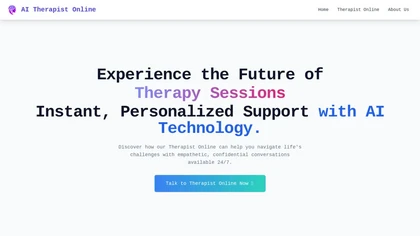In today's fast-paced world, the pursuit of mental wellness has become more important than ever. Online therapy is emerging as a powerful tool that provides individuals with the support they need, all from the comfort of their own homes. As we navigate the complexities of modern life, many are finding that traditional face-to-face therapy can be challenging to access, whether due to time constraints, geographical limitations, or simply the anxiety that comes with stepping into a therapist's office.
The rise of digital communication has transformed how we seek help, making mental health care more accessible than ever. Online therapy allows individuals to connect with qualified professionals through video calls, messaging, or phone sessions, ensuring that support is just a click away. This convenience not only makes therapy more approachable, but it also fosters a sense of safety and comfort, enabling individuals to open up about their feelings and experiences in a way that suits them best.

Understanding Online Therapy
Online therapy, also known as teletherapy or virtual therapy, refers to the practice of providing mental health services over the internet. This modern approach allows clients to connect with licensed therapists through video calls, phone calls, or messaging platforms. By eliminating geographical barriers, online therapy makes mental health support accessible to individuals who may have previously faced challenges in finding in-person services.
The popularity of online therapy has surged in recent years, particularly due to the increasing demand for mental health support. Many people appreciate the flexibility it offers, allowing them to schedule sessions around their existing commitments. Additionally, Therapy Helpers site of receiving therapy from their own space can help clients feel more at ease, which may promote open communication and foster a stronger therapeutic alliance.
Furthermore, online therapy can cater to various needs, including individuals dealing with anxiety, depression, relationship issues, or stress management. Through a range of digital platforms, therapists can provide tools and strategies tailored to each client's situation. This adaptability not only enhances treatment effectiveness but also empowers clients to take an active role in their mental wellness journey.
Benefits of Online Counseling
Online therapy offers unparalleled convenience, allowing individuals to access mental health support from the comfort of their homes. This flexibility eliminates the need for travel, making it easier for those with tight schedules or mobility issues to attend sessions. As a result, it can lead to greater consistency in attending appointments, fostering a more consistent therapeutic process.
Furthermore, online counseling often provides a wider selection of therapists, allowing individuals to find professionals who specialize in their specific needs. This can be especially beneficial for those seeking niche expertise or therapists who share similar backgrounds or experiences. Accessing a diverse range of therapists can enhance the therapeutic relationship, which is crucial for effective healing and personal growth.
Finally, the privacy and anonymity of online therapy can reduce the stigma often associated with seeking help. For many, the ability to engage in therapy without face-to-face interactions can alleviate anxiety and discomfort. This aspect empowers individuals to seek support they might otherwise avoid, ultimately leading to improved mental health outcomes and a greater sense of empowerment in their wellness journey.
Choosing the Right Online Therapist
Finding the right online therapist is crucial to ensuring a successful therapeutic experience. Start by identifying your specific needs and goals. Consider factors such as your personal preferences, the type of therapy you are interested in, and any particular issues you wish to address. Different therapists may specialize in various areas such as anxiety, depression, trauma, or relationship issues. Knowing what you are seeking will guide you in selecting a therapist who aligns with your objectives.
Research is key when choosing an online therapist. Look for credentials and qualifications, ensuring they are licensed and have experience in the areas relevant to your concerns. Reading reviews and testimonials can provide insights into their approach and effectiveness. It may also be beneficial to check if the therapist offers a consultative session, allowing you to gauge their fit and communication style before committing to regular sessions.
Finally, consider the practical aspects of online therapy. Think about the platform the therapist uses for sessions, making sure it is user-friendly and secure. Pay attention to their availability and flexibility in scheduling appointments, as this can impact your consistency in therapy. Finding a therapist who resonates with you personally, while also meeting your logistical needs, will enhance your online therapy experience and support your journey towards wellness.
